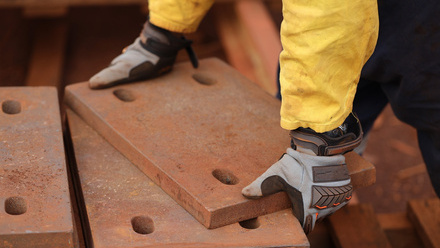Building in balance
A new study examines the challenges men and women in the construction industry face as they try to juggle work and homelife. With the sector facing a looming skills shortage, the research published in the journal Ergonomics could help boost employee retention by improving understanding of the pressures faced by employees.
The study examined work-to-family conflict (WFC): the clash caused by incompatible demands from home life and work life. Research has shown this conflict can affect the mental and physical health of employees and the people around them and high levels of WFC are also linked to high turnover and low commitment in organisations. Understanding the factors that contribute to WFC can help boost wellbeing and occupational health.
Researchers looked at how gender dynamics and stereotypes played a role in the work-family balance of employees in the male-dominated construction industry. They found that both men and women used different strategies, however “the burden for managing WFC typically falls on women”, either as workers themselves or as the partners of workers. While men’s strategies were more family based – such as delegating WF balancing to partners and childcare providers – those used by women were more likely to depend on whether they could get support from a manager, reduce their hours or effectively juggle their work and family responsibilities.
The study said: “On a practical level, the results allow us to identify avenues of reflection to ensure the sustainability of equity of interventions intended to promote work-family balance (WFB) in the construction sector and, potentially, in other physically demanding or male-dominated jobs.”
Read the abstract or as a CIEHF member, login through MyCIEHF to access the full paper.
Find out more about Ergonomics and Human factors by taking the free 60 minute module here.




